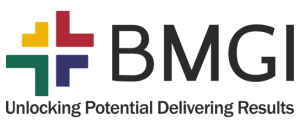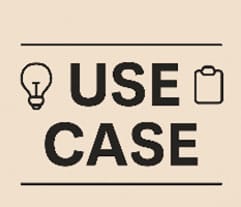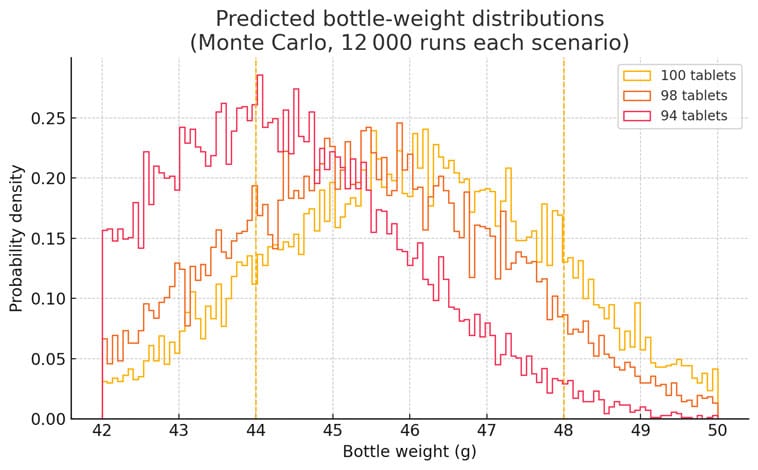OpeXOptics AI tool
INSIDE
New find this week
OpeXOptics AI tool
__
Use Case
Monte Carlo Simulation reveals shortfalls in tablet bottling
OpeXOptics QR:
OpeXOptics: AI-Powered Clarity for Operational Excellence—From Raw Statements to a Battle-Ready Action Plan in 60 Seconds
Say hello to OpeXOptics—the AI assistant built for Operational Excellence and non-finance teams. Messy spreadsheets, frantic pivots between tabs, and late-night ratio math are officially obsolete. OpeXOptics is the on-demand AI analyst built for Operational Excellence and every non-finance team that still lives and dies by the numbers.
What happens when you drop a P&L, Balance Sheet, or Cash-Flow file into OpeXOptics?
| In seconds | You get (We prefer all financial statements in or from www.screener.in formats) |
| 1–5 s | Your document is ingested, cleansed, and mapped—no/little formatting drama. |
| 6–20 s | The neural engine computes Profitability, Liquidity, and Efficiency ratios, then adds plain-English explanations so everyone understands the “why,” not just the “what.” |
| 21–40 s | Your metrics are benchmarked in real time against NYU Stern’s global norms and India-specific averages—instantly exposing above-average wins and below-par leaks. |
| 41–60 s | OpeXOptics’ recommendation layer mines the gaps and spits out an action list of OPEX projects—each one tagged with ROI potential, effort estimate, and the business theme it supports (cost-take-out, cash-release, growth acceleration). |
Why Operational Excellence teams love OpeXOptics
- Slashes analysis time from half-day workshops to one coffee break—freeing Black Belts, Lean leads, and plant managers for real problem-solving.
- Democratizes the finance lens: plain-language insights mean maintenance, supply-chain, and HR leaders can rally around the same data without an MBA.
- Links numbers to action: every ratio variance ties directly to a tactical project idea, so root causes become road-mapped improvements—no extra slides needed.
- Cloud or On-Prem: start in our secure managed cloud for lightning-fast onboarding; switch to a fully on-prem deployment when your IT or compliance team says the word.
Ready to see the optics in action?
Call us for a white-glove walkthrough or scan the QR code in the sidebar to upload a sample statement and watch OpeXOptics build a board-ready action plan—before your coffee gets cold.
Monte Carlo Simulations
– Solid stepped curves show the Monte Carlo-predicted bottle-weight distributions for bottles containing 100, 98 and 94 tablets.
– Dashed vertical lines at 44 g and 48 g mark the current check-weigher limits.
– See how the 98-tablet curve still sits almost entirely inside the spec window, while the 94-tablet curve finally pushes below 44 g—exactly the blind spot highlighted
Use Case
Case-study spotlight: Monte Carlo simulation plugs a hidden quality gap in tablet bottling
A top Indian pharma firm used Monte Carlo modelling to ask a deceptively simple question: Is our automated check-weigher catching bottles with too few tablets? The short answer was no—and the data showed why.
Why it mattered
| Colour in the graphic | What it means | Where the “hill” sits |
| Gold outline | Bottles that really contain 100 tablets | Centred around 46 g (the label weight) |
| Orange outline | Bottles that contain 98 tablets (2 short) | Shifted a tiny bit lighter than the gold hill |
| Red outline | Bottles that contain 94 tablets (6 short) | Noticeably lighter—pushed left |
How those hills were built
- We measured lots of real parts (empty bottles, caps, desiccants and tablets).
- A computer rolled digital dice 12 000 times per scenario, randomly picking a plausible weight for each tiny piece.
- Each roll added up into one “possible bottle,” and all those rolls formed the smooth hills you see.
That rolling-dice approach is called a Monte Carlo simulation—it mimics thousands of what-ifs so you can see the overall pattern instead of just a few samples.
The dashed guard-rail
The vertical dashed lines at 44 g and 48 g are the limits programmed into the factory’s check-weigher. Anything inside that window is accepted; anything outside gets kicked out.
The eye-opener
- The gold and orange hills sit almost entirely between the rails, so bottles missing just one or two tablets still skate through undetected.
- The red hill (94-tablet case) finally spills left of the 44 g rail, meaning only then will every short-filled bottle be caught.
Impact
The data delivered a clear mandate—and a quantified risk reduction plan—that management could act on immediately, bolstering both compliance and customer confidence.
Resources
OKR (Audio/Video presentation) : A Critical thinking framework and discipline that ensures that collaboration for measurable contributions
Successful organizations are using Objectives and Key Results (OKR) now. OKRs are an efficient way to track company and team goals and measure their progress. It helps every organization’s success by cutting out unimportant goals and focusing on what truly is important within the organization.
OKR is a framework for defining and tracking objectives and their outcomes. OKRs has been seen as a way to communicate so that there is clarity of purpose. It is also a tool for motivating and aligning people to work together. It increases transparency, accountability, and empowerment.
This audio/video presentation provides organizations, teams, and employees with an in-depth understanding of the Objectives and Key Results (OKR) Framework. The OKR Framework is comprised of 2 important elements:
The goal of OKR is to define how to achieve objectives through concrete, specific, and measurable actions. Having a good understanding of OKR will guide companies and teams to better focus on what is important and connect work at every level to the most important goals.
Article: “Fail Fast, Rise Faster: The Unstoppable Power of Courage to Experiment
Most people don’t fail too much—they fail too little. They hesitate, play it safe, and avoid risks, thinking that’s the path to success. It’s not. The only real way forward is to fail, fail fast, and fail often.





